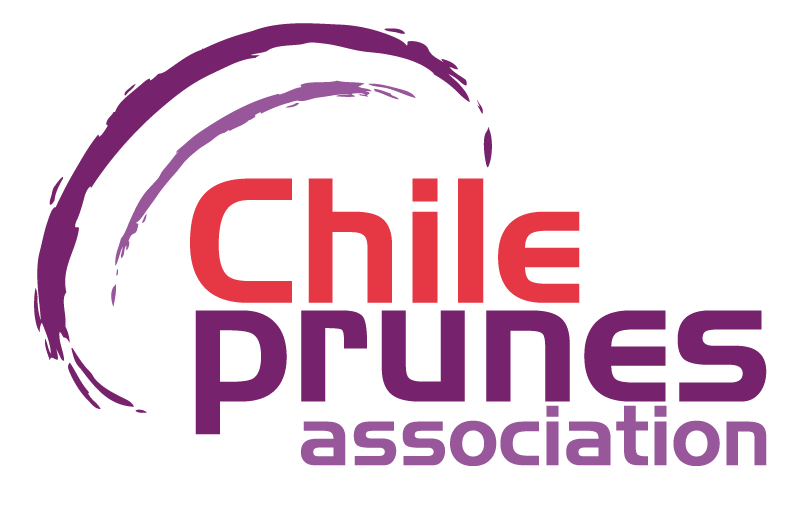Interview with Pedro Pablo Díaz, president of Chileprunes.
Comment on the health benefits of eating prunes…
The health benefits are multiple, and for this reason, it is often referred to as a superfood. Indeed, not only is it a refreshing and delicious fruit, but it also helps good health because it is rich in nutrients and antioxidants, as well as having various vitamins, minerals, and fiber.
One of the first known benefits for years is that they are an excellent source of dietary fiber, which can promote digestive health and prevent constipation. Fiber helps maintain bowel regularity and promotes the proper movement of food through the digestive system.
But that is only a part. Prunes are a good source of several vitamins and minerals, including vitamin K, vitamin A, vitamin C, potassium, and iron. These nutrients are important for the proper functioning of the body and can contribute to bone health, immune function, skin health, and more.
They also benefit heart health: Prunes are high in potassium, a mineral that can help lower blood pressure and improve overall heart health. In addition, some studies suggest that plums may help reduce “bad” cholesterol levels in the blood.
Does its consumption help fight osteoporosis?
Prunes contain a significant amount of calcium, an essential mineral for bone health, as well as other important nutrients for bones, such as magnesium and vitamin K.
Then, I would like to add that in the last five years sufficient scientific evidence has accumulated to consider prunes as the best food for the treatment of osteoporosis, a pandemic that affects the elderly, especially women.
One of the latest research from the University of Pennsylvania suggests that they may also help prevent or delay bone loss in women after menopause. In postmenopausal women, the decline in estrogen can trigger increased oxidative stress and inflammation, increasing the risk of bone weakness that can lead to fractures. Incorporating prunes into your diet can help protect your bones by slowing down or reversing this process.
The polyphenols present in prunes have antioxidant and anti-inflammatory action, which promote lower levels of inflammation in a type of bone cell called osteoclasts, in addition to reducing cell damage and preventing the development of cancer.
And what is the link with weight loss? Or what helps reduce fatigue?
Due to their fiber content and chewy texture, prunes can help increase feelings of satiety, which can be beneficial for weight management. By including prunes as part of a balanced diet, you can feel full longer and reduce the urge to overeat.
Regarding the second question, its natural sugar content ensures a very valuable caloric intake to deal with fatigue and increase optimism.
Refer to the cardiovascular topic…
Some research suggests that regular consumption of prunes and prunes may have positive effects on cardiovascular health. It has been observed that they can help reduce LDL (“bad”) cholesterol and improve the lipid profile in general.
Dried plums contain a variety of antioxidants, such as polyphenols, which help protect cells from damage caused by free radicals. Antioxidants may have beneficial effects on overall health and may help reduce the risk of chronic diseases, such as heart disease and certain types of cancer.
In addition, it is rich in vitamin C, vitamin K and pectin, all three help keep blood vessels healthy, prevent calcification of arteries and reduce cholesterol. This prevents heart attacks and arteriosclerosis.
Recent discoveries also give you benefits to increase muscle mass, is that correct?
Indeed, in an investigation from Oklahoma State University, United States, researchers were able to verify that the consumption of prunes significantly increased IGF-1 concentrations. It is a protein responsible for regulating growth hormone, leading to the development of bones and muscle tissue. In fact, the participants ultimately increased this protein by 17%.
Currently, high-performance athletes use its properties synthetically for three main reasons: to lose fat, improve their resistance and add muscle mass. If you take about six prunes just before training, you have the energy you need to train effectively.
What is the daily consumption that must be made to obtain the benefits.
Eating prunes in excess can cause problems, so you should know how much to eat per day to take advantage of its benefits. In this sense, it is recommended to eat around 3-4 prunes a day or 150-170 grams for men and 140 grams for women.
Are you working on studying new benefits?
Chileprunes actively participates in the Bonehealth Research study through IPA (International Prunes Association), where we have had very promising results, not only in the prevention of osteoporosis, but also in the regeneration of bone mass. This study, which has been going on for several years, aims to achieve the official ‘claim’ and thus be able to promote this attribute in all parts of the world.
Regarding the marketing campaigns in the different markets, do they highlight the health benefits?
Indeed, at an international level we have carried out campaigns that highlight the multiple benefits that prunes have and that have made them a superfood, and we will continue to do so.
Finally, what is the main benefit that is valued by consumers?
We do not have a specific study that points out the benefit that most consumers highlight from prunes, but I can point out five essential virtues that arise from conversations I have with different stakeholders: being an excellent source of dietary fiber, containing a variety of antioxidants, being a good source of several vitamins, minerals, and their effects on cardiovascular health.



